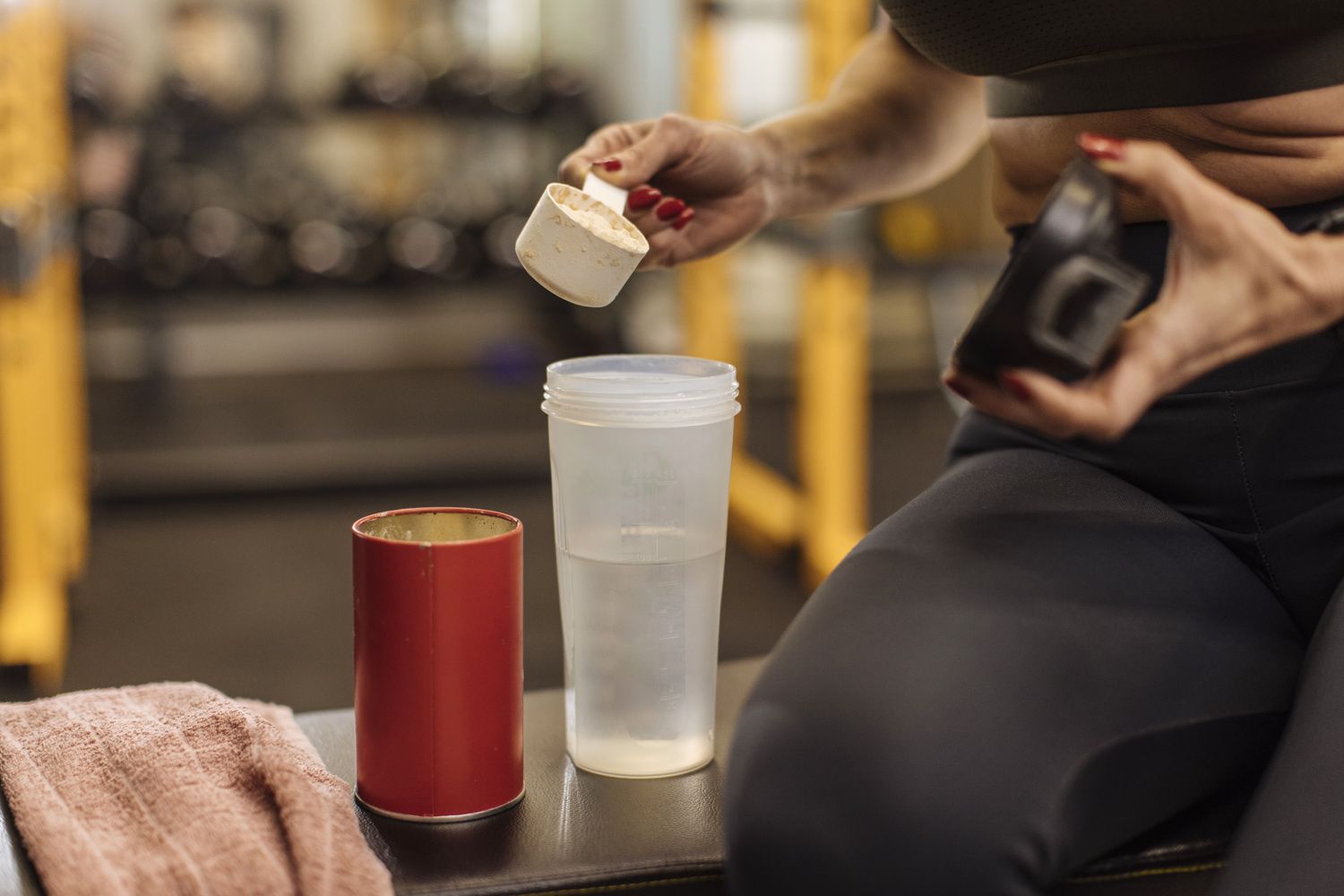Pre-workout supplements are often marketed to maximize performance, but people who exercise daily may not need them before every run or strength training session.
Using Pre-Workout Daily Might Have Diminishing Returns
Pre-workout supplements typically include ingredients like caffeine, creatine, beta-alanine, and electrolytes. Available as powders, pills, drinks, and gummies, pre-workout may provide extra strength and endurance to help you push through strenuous physical activities.
However, using them daily can reduce their effectiveness over time.
“Taking this pre-workout supplement daily isn’t necessarily harmful, but over time, the body can build up a tolerance to it,” Lena Beal, MS, RDN, LD, an Atlanta-based registered and licensed dietitian and spokesperson for the Academy of Nutrition and Dietetics, told Verywell.
Some athletes may also become too dependent on pre-workouts, making exercise feel more difficult without them. Beal recommends cycling off periodically—for example, using the supplement for four weeks and then taking a two-week break.
Watch for Caffeine Overload
Caffeine is a key ingredient in many pre-workout supplements. As a stimulant, it can boost energy and focus, helping to enhance exercise performance. But high doses can also cause side effects, according to the International Society of Sports Nutrition (ISSN).
Too much caffeine may lead to anxiety and jitteriness, sleep disturbances, heart palpitations, stomach upset, and headaches.
Most adults can safely consume up to 400 milligrams (mg) of caffeine per day. Many pre-workout supplements contain 250–400 mg per serving, so it’s important to read the label and account for other sources of caffeine in your diet.
“I see this a lot of times in the collegiate arena, [athletes] may have a cup of coffee when they wake up, and then they drink an energy drink, and then they take this stimulant pre-event, and all of a sudden they’ve had a lot of caffeine in the day,” Sarah Wick, RD, CSSD, LD, director of sports nutrition at The Ohio State Jameson Crane Sports Medicine Institute, told Veywell.
Even with label checks, the actual caffeine content may not always be accurate, Wick added.
Look for Verified Supplements
Pre-workout supplements are not regulated like food or drugs. The Food and Drug Administration (FDA) does not have to approve them for safety before they hit store shelves.
It is up to the supplement companies to ensure the labels are accurate. Studies have found that supplement labels don’t always match the product’s ingredients. A 2023 study that included pre-workout supplements found that 89% of the labels were inaccurate.
Third-party organizations, like USP and NSF, can verify whether the supplements contain the ingredients listed on the label. NSF’s “Certified for Sport” verification ensures that supplements are free from certain banned substances. Still, third-party labels don’t guarantee that a supplement is safe and effective.
“You really have to look closely at what’s on the label and how much is in there. And if there’s no third-party verification, I just don’t think it’s a smart idea,” Wick said.
You Can Get Pre-Workout Fuel from Food
Pre-workout supplements don’t work well for everyone. In a 2019 study, more than half of the 872 participants who used them reported side effects like nausea, skin problems, and heart abnormalities.
It’s best to check with your healthcare provider before starting a new pre-workout supplement routine, especially since some ingredients may interact with medications, Beal said.
Supplements aren’t the only way to boost energy before a workout—certain foods can also help fuel exercise. Beal recommends snacks like bananas, dates, oats with peanut butter, and Greek yogurt with berries. If you need a caffeine boost, opt for coffee or green tea.
What This Means for You
Pre-workout supplements may help boost energy and performance, but daily use can lead to reduced effectiveness or unwanted side effects. Talk to your healthcare provider before starting a supplement, especially if you take other medications. For a safer energy boost, consider food-based options like bananas, oats, or coffee.
Verywell Health uses only high-quality sources, including peer-reviewed studies, to support the facts within our articles. Read our editorial process to learn more about how we fact-check and keep our content accurate, reliable, and trustworthy.
-
University Hospitals (Ohio). Pre-workout supplements: are they worth taking?.
-
Harvard T.H. Chan School of Public Health. Workout supplements.
-
Guest NS, VanDusseldorp TA, Nelson MT, et al. International Society of Sports Nutrition position stand: caffeine and exercise performance. J Int Soc Sports Nutr. 2021;18(1):1. doi:10.1186/s12970-020-00383-4
-
Jagim AR, Camic CL, Harty PS. Common habits, adverse events, and opinions regarding pre-workout supplement use among regular consumers. Nutrients. 2019;11(4):855. doi:10.3390/nu11040855
-
Food and Drug Administration. Dietary supplements.
-
National Institutes of Health Office of Dietary Supplements. Dietary supplements: what you need to know; fact sheet for consumers.
-
Cohen PA, Avula B, Katragunta K, Travis JC, Khan I. Presence and quantity of botanical ingredients with purported performance-enhancing properties in sports supplements. JAMA Netw Open. 2023;6(7):e2323879. doi:10.1001/jamanetworkopen.2023.23879
-
USP. USP verified mark.

Thanks for your feedback!
What is your feedback?
Helpful
Report an Error
Other
